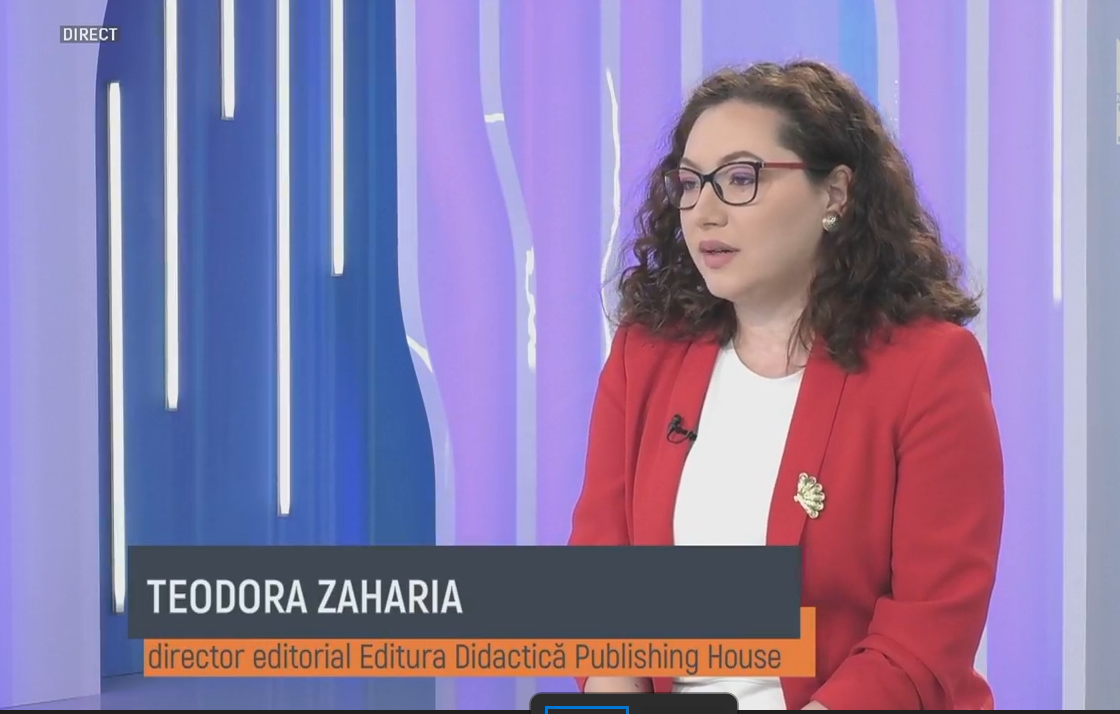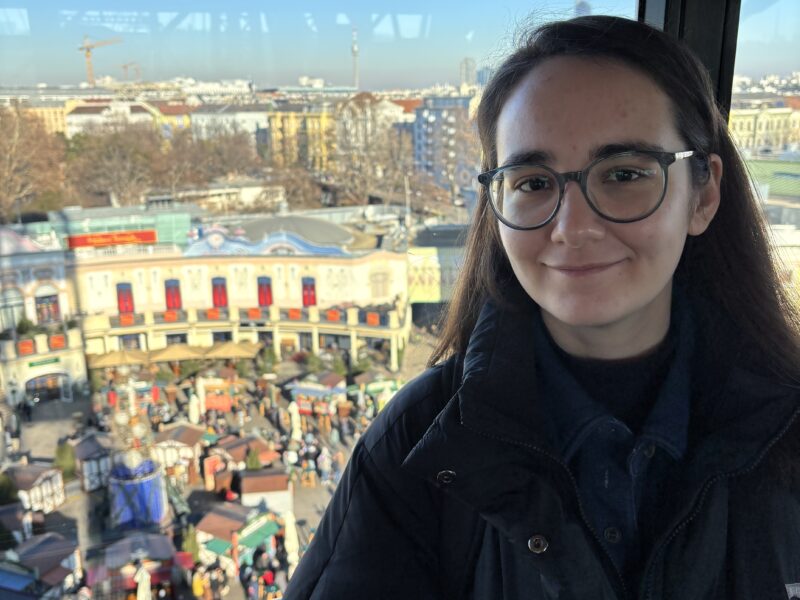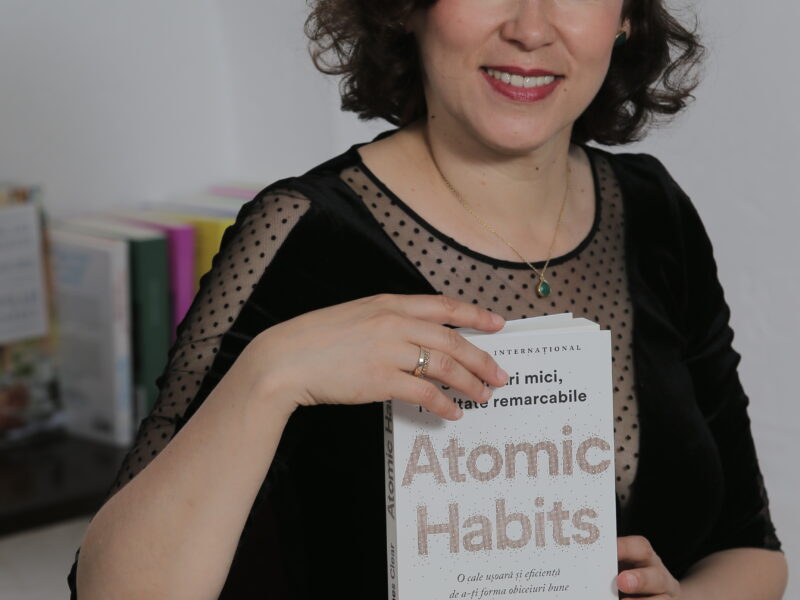Teodora Zaharia is editorial director at Didactica Publishing House(DPH). Her career in the book industry began in 2007, when she was a student. She worked with Orizonturi publishing team, at Aramis and Rao, and since 2017 she has been with DPH, where she started as Foreign Rights Manager. Along with coordinating editorial projects and the teams in charge of their realization, Teodora is also involved in the acquisition of translation rights, in maintaining the relations with Romanian authors that the publishing house publishes, in participating in international and local fairs. Always attentive to the needs of readers and to new trends in books and interactive projects for children and adults, Teodora Zaharia is an enthusiastic example of how passion can bear fruit if harnessed in the right place at the right time.
You entered the world of publishing in 2007, during your university studies, working for almost a year and a half at Orizonturi publishing house as general editorial secretary. How did you end up at Orizonturi, what did the job entail and what was the book market like back then?
I was a student and needed a job. I found the job advertisement in a newspaper and went for an interview without thinking that it would change the course of my life. The world of books was familiar to me from home (I grew up in a house full of books), but I didn't know what working in a publishing house entailed. At the time, my job consisted of keeping track of the work, keeping in touch with all the contributors, keeping track of deadlines and even some copyright responsibilities. The book market looked quite different, the way of working was different - books were still sent to press on tracing paper, all proofreading was done on paper and online bookstores were non-existent. I remember I even attended Bookfest 2008 and got to see the whole picture of what the book market was at that time.
Before returning to a publishing house, you worked as a librarian at the Central University Library (CUL), an important place in the personal mythology of many (former) students, myself included. What was the experience there like?
It was a nice experience, working in the branch of the Political Science faculty - again surrounded by books. There I learned the rigours and procedures you have to follow when working with the public and books. I met remarkable people to whom I am grateful for the path I have taken later in my career. It was then that I realised that my place could be nowhere else but in the world of books.
After the detour to CUL, years at Aramis publishing house and then the short period at RAO publishing house followed. Where you were in charge of the copyright, its acquisition and other stages of preparing a book for publication. What was it like working in these teams and what did these jobs entail in concrete terms?
The years after CUL were the years when I actually trained myself in everything that working in a publishing house and publishing a book meant. From manuscript to sending it to press, I learned every step of the way. Although it was similar to the tasks I had as an editorial secretary since 2007, this time the workload was almost double, the deadlines much tighter and the responsibilities more and more. The copyright acquisition process was a new element and I really enjoyed it. Choosing the title from the catalogue, contacting the publisher or agency for the purchase, sending the offer, signing the contract, following all the steps and keeping track of the contracts - all these things were no longer tasks for me, but simply a pleasure and in time became a passion.
In 2017 you joined Didactica Publishing House as Foreign Rights Manager, progressing to Editorial Director. What was it like starting out at DPH and what did this evolution entail?
Yes, 2017 was the year I joined the Didactica Publishing House team. A team like I had never met before, who welcomed me with open arms and appreciated me for my knowledge, experience and passion. The evolution came gradually, as I became more and more committed to meeting and even exceeding the goals set. It has been an organic growth, full of professional and personal satisfaction.
What does your working day look like today?
The day starts with setting my agenda and the tasks I have to complete by the end of the day. It also depends a lot on the time of the year and the status of the projects proposed for publication, because sometimes we have busy periods of time, sometimes complex projects and short deadlines, but with the help of the team I coordinate, we manage to complete all projects successfully. Many of them run simultaneously and I have to follow every detail and every step of the process. In addition to fiction and non-fiction books, we also publish educational games, textbooks and digital materials. In addition, we are constantly trying to get involved in European projects such as the one we won last year in the Creative Europe programme, in which we will publish 16 international fiction titles dealing with environmental and ecological themes.
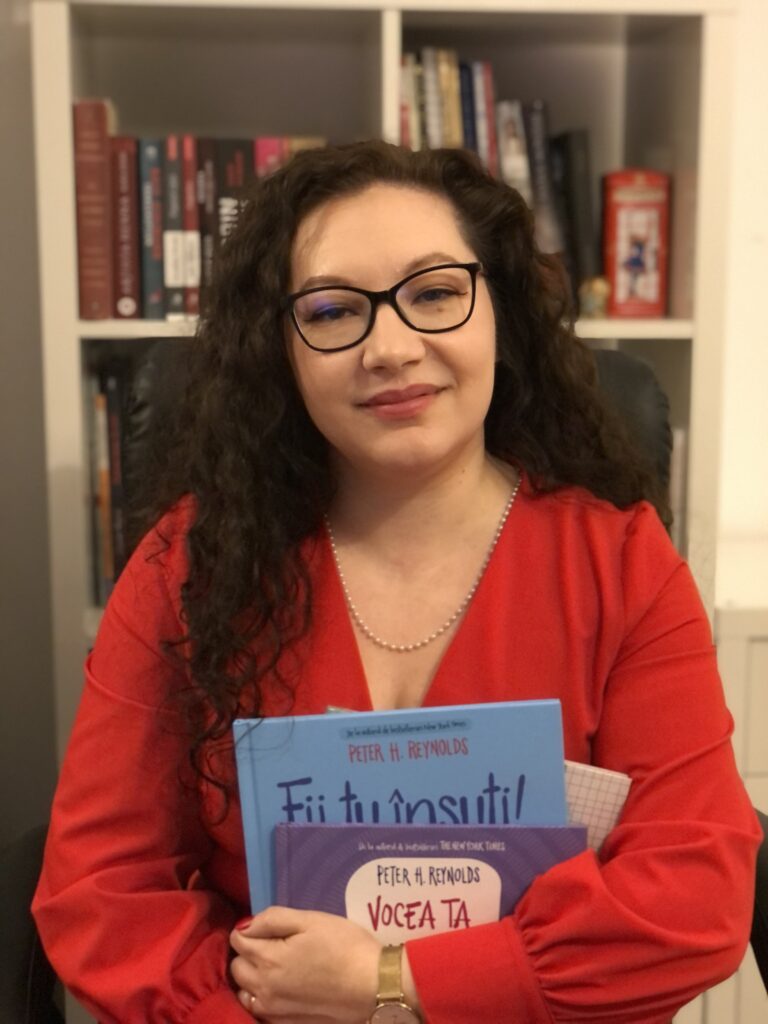
You coordinate a team of ten people, but also the work of many more external collaborators. How do you balance the rigour of deadlines, motivation and creating a relaxed working environment?
Both my colleagues and the collaborators I manage are professionals with many years of experience in the publishing industry and everyone knows what they have to do in order to achieve our goals as a team. Of course, the rigour of deadlines and discipline helps us to be well organised and to have a clear vision of what we need to achieve, but we don't necessarily feel pressure in this respect.
At a time when many in the publishing industry lament the difficulty of finding professionals to work with, where do you recruit your new colleagues or collaborators from?
We are a close-knit team who have worked very well together for many years. We work equally well with collaborators. It's not very often that we need new colleagues or collaborators, but when we do, we make use of the database where we register the CVs we have received recently.
One of the directions of the job description is the acquisition of translation rights. I assume you get dozens of proposals every day from literary agencies or publishers abroad. How do you navigate through all of these to make sure you don't miss out on a title that's right for you, and what are the criteria by which you choose the projects that enter the DPH portfolio?
That's right, every day I receive dozens of proposals and submissions from agencies or publishers abroad, as well as manuscripts from debut Romanian authors. I study each one individually and analyse them from the point of view of the criteria and values of our publishing house. It is also important to know the readers' needs and thus select books and educational games centred on them. As we are a publisher that focuses on children and their education, most books and games are selected according to: the theme they deal with, the way the theme is written, the author's expertise, the author's notoriety (if any) and the sales potential the book might have. In recent years, the most sought-after books have included topics such as understanding and managing emotions, Montessori pedagogy activities, core values, harmonious development, courage, confidence and current issues facing children and parents today. Encyclopedias, and non-fiction books that are in interactive, atypical formats that keep the child connected to the information presented are also very popular.
But the selection process involves several people, not just one person.
Although in a smaller percentage than translations, the publishing house also has a significant number of Romanian authors published. You said in an interview that you are also in charge of the relationship with them, following their projects from idea to finished product. What does this path look like? How is working with a Romanian author different from working with foreign partners, how do you find the middle ground between their expectations and the reality of the market?
Romanian authors, both debut and established, are very important to us because one of the values of our publishing house is to support Romanian authors and the culture of our country. That's why the number of debut Romanian authors is growing every year and the number of published authors is increasing. Collaboration with Romanian authors is no different from that with foreign partners, because we are equally involved in each project and we want each party to be satisfied with the final result. In terms of the author's expectations and the reality of the market, most of them know how things are in the book market and understand what the challenges are in terms of readership in our country.
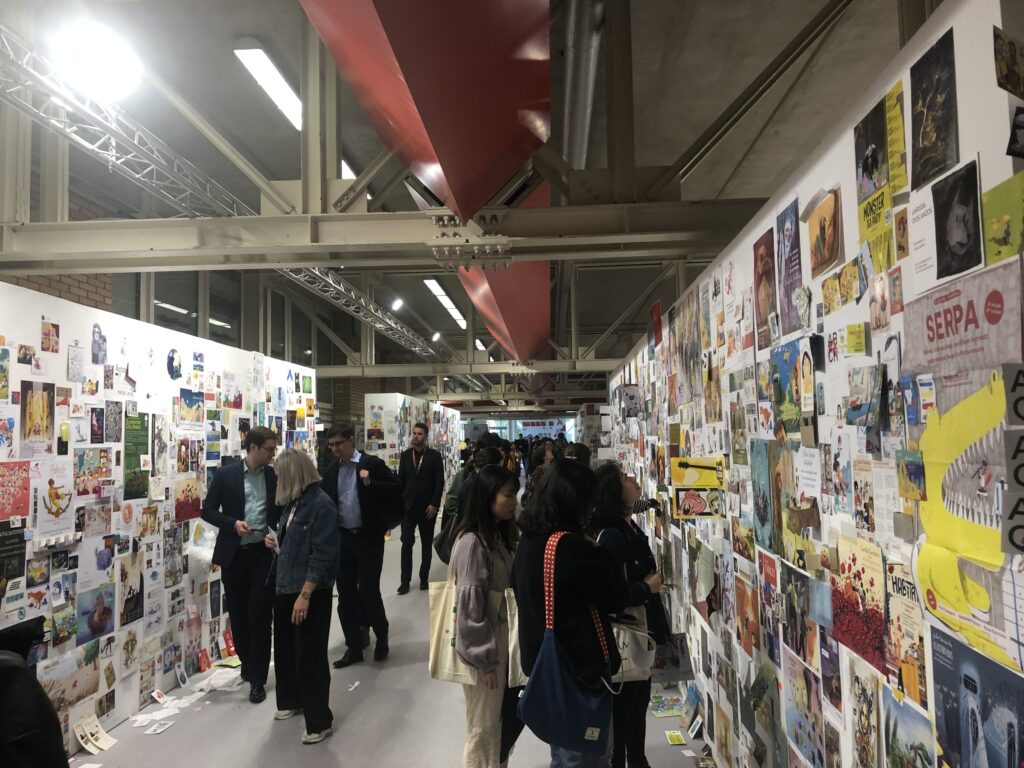
You have participated in numerous editions of the international book fairs in Bologna and Frankfurt. What are your general objectives when you take part in such an event? Do you have any memories from any of the fairs that have become a story?
Apart from the dozens of meetings I have with foreign publishers, old and new partners, the main objective is to select titles that stand out considerably from the rest of the existing offer on the market - educational books and games that become an experience in themselves and are constantly returned to. Another objective is to follow international trends and identify potential new partners.
One memory that has become a story is when I was so fascinated by a book presented at a meeting and wanted so much to bring it to children in Romania that I made the offer on the spot in Bologna. Of course I also got the contract after I returned home.
Local book fairs are also important in a publisher's economy, and DPH always has a spacious and welcoming stand at Bookfest and Gaudeamus. What does such a fair entail for you, and how do you get involved?
For me, preparation for local fairs starts many months in advance. We draw up the list of new books for the fair, prepare all the books so that we have them fresh out of the oven at the fair (sometimes they come straight from the printers) and, if necessary, set up meetings with external partners who visit us. On the actual fair days I provide support and information to customers who come to the stand, sometimes I read stories to children and let them discover the books they are attracted to. My role there is also to talk to customers and find out new topics of interest to them, feedback for our books and ideas for new projects.
If the Romanian publishing world were a board game, would it be cooperative or competitive? And what would the board, tokens, and other elements look like?
If the Romanian publishing world were a board game, it would certainly be a cooperative one and the ultimate goal would be to increase readership, education and mutual help for the development of the book market in our country.
[The photos are part of Teodora Zaharia's archive.] [Translated into English by Oana Dragomir.]

